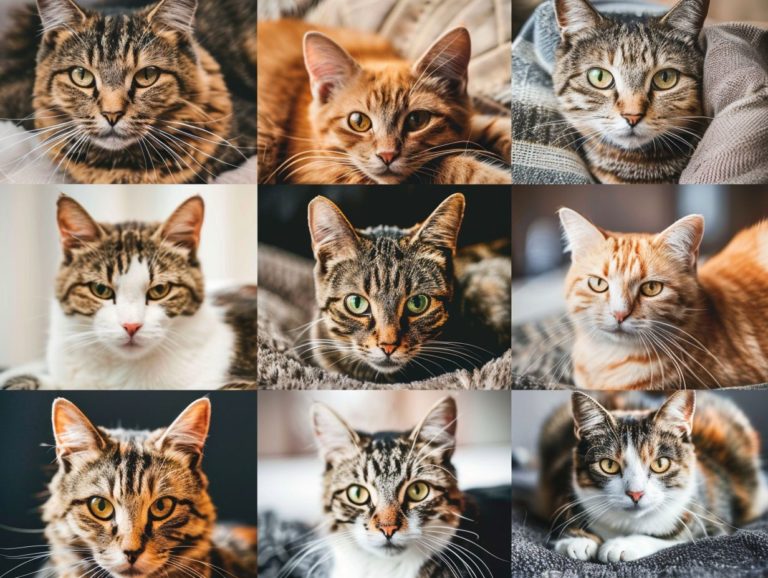Preventative Care Options In Indoor Cat Insurance
This article explores the significance of indoor cat insurance for owners of indoor cats, what indoor cat insurance entails, the importance of preventative care along with some examples, and how to select the most suitable insurance for an indoor cat. Recognizing the value of preventative care can result in cost savings and enhanced health for your cat, ultimately contributing to a long and joyous life for your beloved pet.
Key Takeaways:
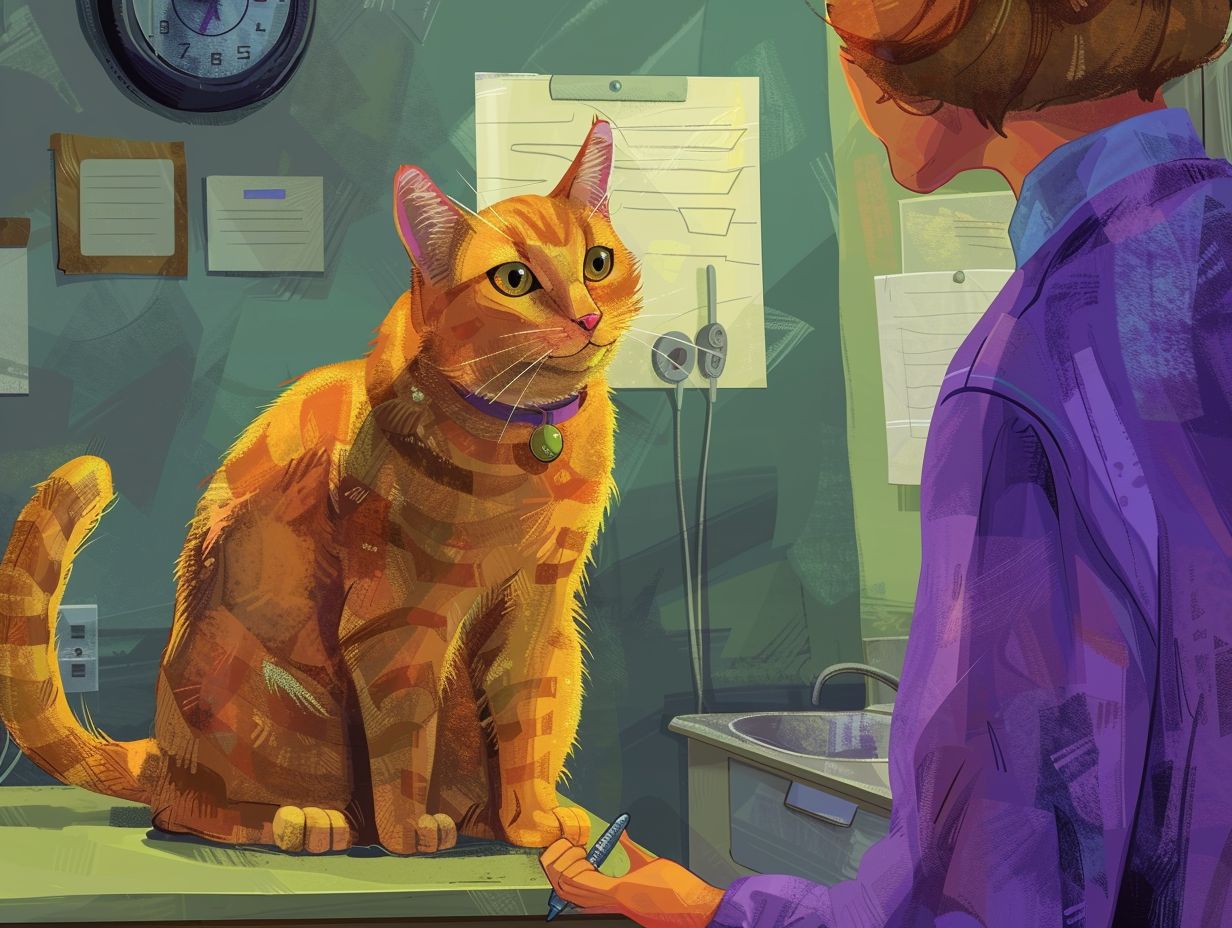
Understanding Indoor Cat Insurance
Understanding indoor cat insurance involves familiarizing oneself with the various pet insurance companies and providers that offer plans specifically designed for indoor cats. Pet owners must research the available plans and select a policy that best aligns with their cat’s wellness and potential health needs.
Major pet insurance companies catering to indoor cats include Healthy Paws, Petplan, Embrace, and ASPCA. These providers offer policies covering accidents, illnesses, prescription medications, and sometimes preventive care measures.
When choosing a policy, it is essential to consider factors such as coverage limits, deductibles, reimbursement rates, and customer satisfaction reviews to make a well-informed decision. Comprehensive insurance for indoor cats provides peace of mind for owners, ensuring they are financially prepared for unexpected medical expenses for their feline companions.
What is Indoor Cat Insurance?
Indoor Cat Insurance is a specific type of pet insurance policy that offers wellness coverage tailored to the needs of indoor cats. It encompasses preventive care, routine medical examinations, and vaccinations to maintain the overall health and well-being of indoor cats.
Regular visits to the veterinarian are crucial for indoor cats, as they may encounter health issues unique to their indoor lifestyle, such as preventive care benefits, obesity, dental problems, and behavioral concerns. These insurance policies enable owners to take a proactive approach to their indoor cats’ health by facilitating early detection of any underlying health issues.
They typically cover diagnostic tests, dental cleanings, and even behavioral therapy to address any challenges that may arise in an indoor cat’s environment.
Benefits of Preventative Care for Indoor Cats
The benefits of preventive care for indoor cats extend beyond financial savings to encompass improved health outcomes and a better quality of life. Including a wellness add-on in your pet insurance policy covers the costs of preventive treatments and routine care, guaranteeing that your indoor cat receives necessary and timely medical attention.
Regular check-ups are essential for early detection of underlying health issues that could develop and worsen over time. Preventive treatments such as vaccinations, parasite control, and dental care can significantly decrease the likelihood of severe diseases in indoor cats, providing a sense of security.
Wellness add-ons in pet insurance policies offer an extra layer of protection to pet owners, ensuring comprehensive care for their pets. Investing in preventive care is investing in your cat’s long-term health and a lengthy, high-quality life.
Cost Savings and Improved Health
Cost savings and improved health are benefits of preventive care for indoor cats. By preventing potential health issues through early diagnosis via regular veterinary check-ups and maintenance care, pet owners can avoid yearly expenses and enhance the overall well-being of their indoor cats. Preventive measures such as vaccinations, parasite control, and dental examinations play a significant role in maintaining the health of cats. These measures enable early detection of conditions that might otherwise require costly intervention later on.
Regular veterinary check-ups help monitor the overall health of the cat, enabling veterinarians to create personalized wellness plans to prevent potential health issues before they escalate. Preventive care not only strengthens the bond between pet owners and their indoor cats but also ensures long-term cost savings and a higher quality of life.
Common Preventative Care Options for Indoor Cats
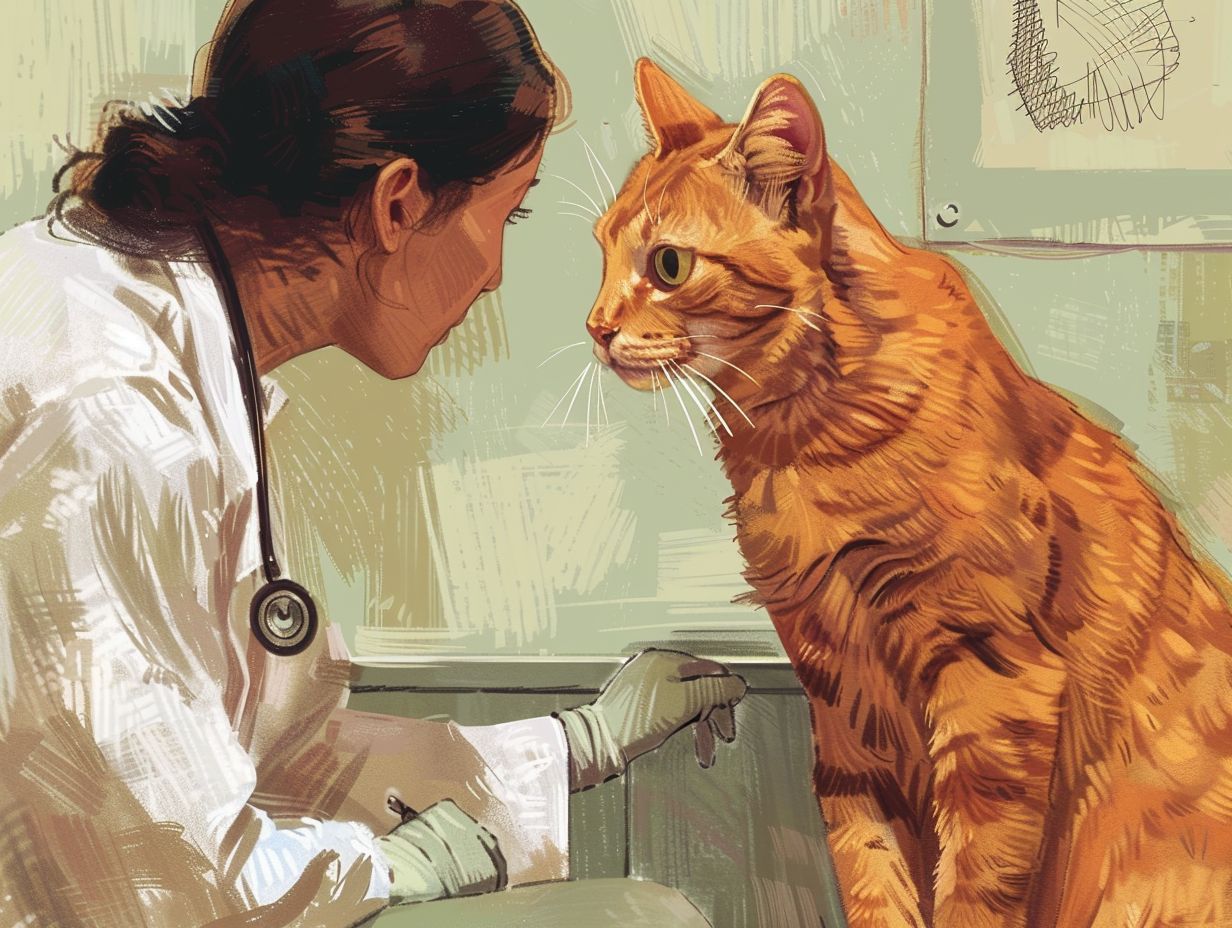
Common Preventative Care Options for Indoor Cats are procedures and treatments that help prevent illness and promote the overall health of indoor cats. This includes vaccinations, routine check-ups, neutering, and other disease-preventing options.
Regular vaccinations are necessary to protect cats from life-threatening diseases such as rabies, feline leukemia, and distemper. Neutering not only helps prevent unwanted litters but may also reduce the risk of certain cancers. Routine check-ups are essential for identifying any potential health problems early on, enabling timely treatment decisions.
The appropriateness of various preventative care options depends on the individual cat’s lifestyle and environment to promote a long and healthy life.
Vaccinations and Routine Check-ups
Preventative measures for indoor cats include vaccinations and routine check-ups. Regular vaccinations and veterinary check-ups offer the chance for early detection of potential medical issues, allowing for timely intervention and preventive care.
Vaccinations, as a preventative measure, are essential for maintaining the overall health of your cat. Adhering to a vaccination schedule helps safeguard your cat against a wide array of life-threatening diseases and infections.
Routine check-ups enable the veterinarian to evaluate the cat’s general health, address any specific concerns you may have, and offer advice on nutrition and behavior. Consistent veterinary visits contribute to building a strong bond between veterinarian and patient, fostering trust and providing comprehensive care for your indoor cat.
Parasite Prevention and Treatment
Preventing and treating parasites are crucial elements in maintaining the health of indoor cats. Regular parasite prevention measures and testing for common feline diseases not only contribute to their overall health and longevity but also help in identifying hidden health issues.
By adhering to a consistent schedule of preventative treatments, such as flea, tick, and heartworm treatments, and regular veterinary check-ups, cat owners can ensure the well-being of their indoor feline companions. Explore senior cat insurance options for wellness and preventive care.
Detecting parasites and diseases early enables prompt intervention and reduces the risk of health complications, leading to a better quality of life for indoor cats.
Dental Care
Proper dental care is crucial for indoor cats as a key component of their overall wellness. Maintaining good dental hygiene for indoor cats involves regular cleanings and check-ups to prevent dental issues and promote healthy teeth and gums. Regular dental cleanings are essential for removing plaque and tartar buildup, which can lead to gum disease and tooth decay.
Routine dental check-ups with a veterinarian enable early detection of any potential problems, helping to prevent more serious dental issues in the future. By prioritizing oral health as part of your cat’s wellness care routine, you are safeguarding their overall health and well-being, contributing to a happier and healthier life for your beloved feline companion.
Choosing the Right Indoor Cat Insurance Plan
Selecting the appropriate indoor cat insurance plan involves assessing coverage options, costs, and benefits offered by different insurance providers. By carefully comparing coverage plans, pet owners can identify the policy that best meets their indoor cat’s healthcare needs.
Coverage: Evaluating coverage entails examining the specific medical services included, such as surgeries, medications, diagnostics, and other services.
Cost: Evaluating the cost involves considering premiums as well as ensuring that the coverage is affordable and that deductible and benefit limits align with one’s budget.
Benefits: Evaluating benefits involves reviewing additional services offered alongside coverage, which may include wellness visits, emergency care, dental coverage, and other benefits.
When choosing the right indoor cat insurance plan, it is essential to compare these aspects of coverage, cost, and benefits across different insurance providers.
Factors to Consider
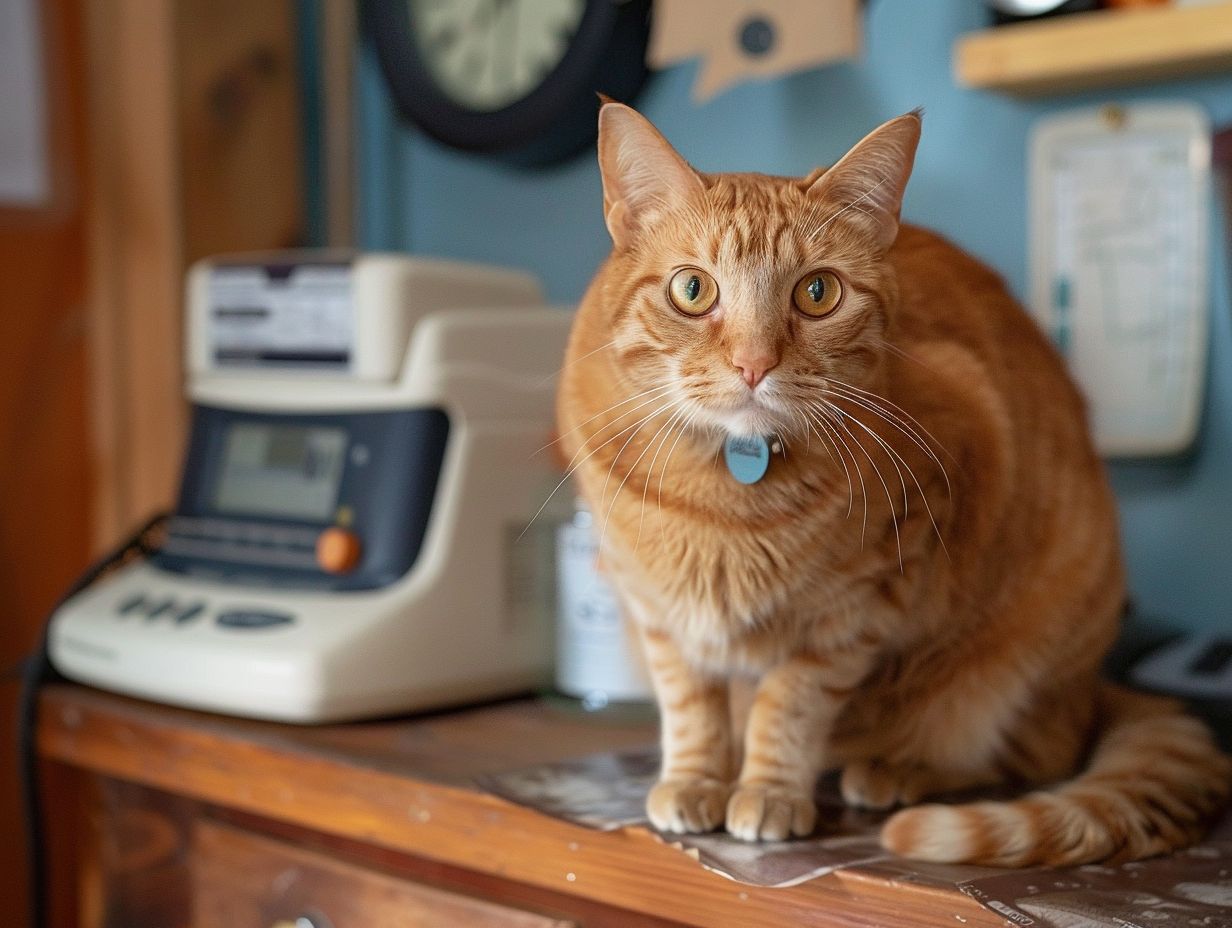
When selecting an indoor cat insurance policy, key factors to consider are the senior cat insurance coverage options explained, the overall value of the coverage, and whether the policy comes with a money-back guarantee. These factors are essential for pet owners to evaluate in order to ensure they receive appropriate coverage and peace of mind.
Evaluating the monthly premiums is crucial as it determines the cost for which pet owners will be responsible on a regular basis. Pet owners should aim for affordable premiums while securing comprehensive coverage to prevent financial strain.
The value of the coverage is important to ensure pet owners receive coverage for essential items such as accident and illness coverage, diagnostic tests, medications, and surgeries. A money-back guarantee adds an extra layer of security, safeguarding the investment of pet owners.
Maximizing the Benefits of Preventative Care
To maximize the benefits of preventative care for indoor cats, it is important to start early, especially when caring for a young kitten or puppy. Investing in preventive treatments and regular check-ups from a young age lays the groundwork for long-term savings and optimal health for indoor felines. Preventative care ensures the overall well-being of your beloved pets and helps identify potential health issues before they escalate, leading to both financial and emotional savings in the future.
Early interventions such as vaccinations, deworming, and routine health screenings can prevent the need for more costly treatments or emergency visits later in your pet’s life. Initiating preventive care at a young age sets a positive example for their overall health, promoting a joyous and active lifestyle for your indoor cat.
Tips for Maintaining Your Indoor Cat’s Health
Proactive measures to ensure indoor cat health include regular neutering, administering necessary treatments, and understanding the refund policies for healthcare services. These measures are essential for maintaining the best health of your indoor cat. Neutering serves not only as a population control method but also as a preventive measure for various health issues in indoor cats. It is crucial to discuss the timing of neutering procedures with your veterinarian.
Regular vaccinations, flea and tick treatments, and routine check-ups are vital for your cat’s well-being. Understanding the refund policy for healthcare services can provide peace of mind in unforeseen circumstances and help you guarantee the optimal care for your indoor cat.
Frequently Asked Questions
What are preventative care options for indoor cats?
Preventative care options for indoor cats may include routine check-ups, vaccinations, and parasite prevention.
Is preventative care covered by indoor cat insurance?
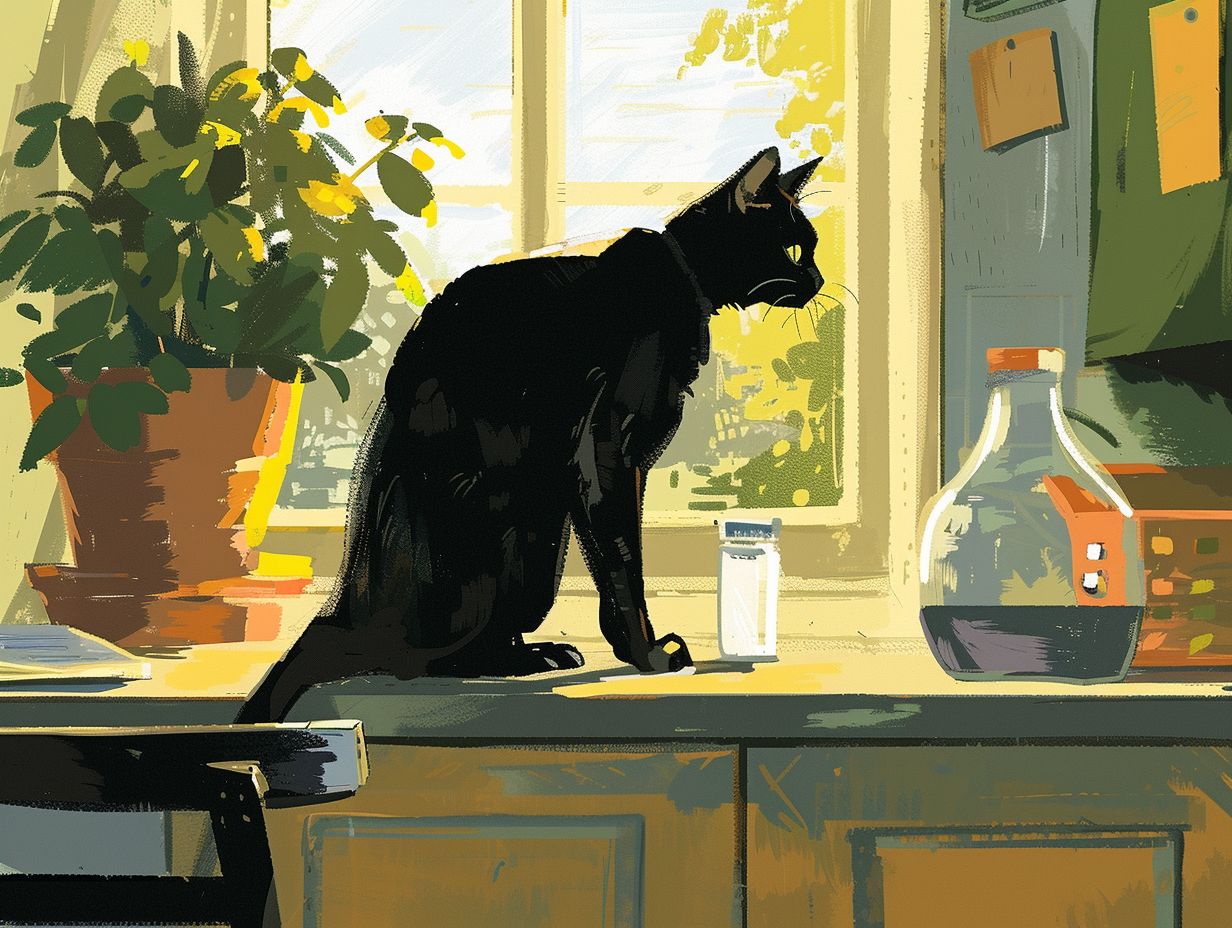
Yes, most indoor cat insurance plans offer coverage for preventative care options to help keep your cat healthy and prevent future health issues.
What types of vaccinations are typically covered under preventative care in indoor cat insurance?
Common vaccinations covered may include rabies, feline distemper, and feline leukemia.
Are there any restrictions on preventative care coverage for indoor cat insurance?
Some insurance providers may have restrictions on the frequency or specific types of preventative care covered, so it is important to carefully review your policy.
Do I have to pay for preventative care upfront and then get reimbursed by my insurance provider?
It depends on your insurance plan. Some plans may require you to pay upfront and submit a claim for reimbursement, while others may have a network of veterinarians who can directly bill your insurance provider.
Can I add preventative care coverage to my existing indoor cat insurance plan?
In most cases, you can add preventative care coverage to your existing indoor cat insurance plan by contacting your insurance provider and adjusting your policy accordingly.

